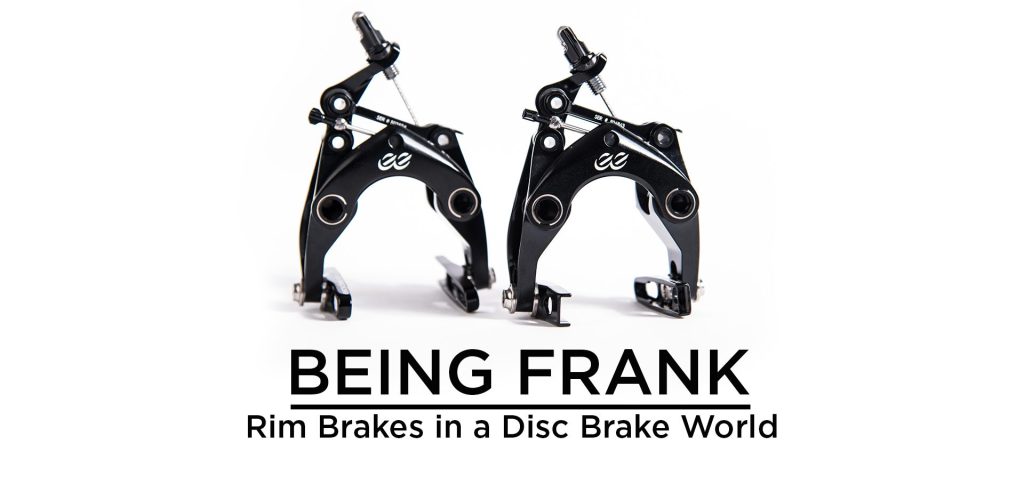PayPal now available at checkout
Free US Shipping On Orders $99+
Extended Support Hours! Tuesday to Thursday: 10 am - 7 pm
Previous slide
Next slide


Eleven years ago before heading into a meeting with some Shimano Japan executives, my good friend Adam Micklin who was at the time the Shimano American OEM Sales Manager asked me “Are you going to hammer them again on road disc brakes?” I said “hell yes”, and Adam moaned. A few years later I kicked off a presentation to a 100+ Specialized employees stating that “Every high-performance vehicle with wheels on the planet uses disc brakes. It’s only a matter of time before the same is true for performance road bikes.” Let’s say that the response was not overwhelming. While my belief in road disc brakes has never wavered, it has taken longer than I thought for the changeover to take hold.
While we have seen some road bike models with disc brakes – I remember a Trek Portland around 2006 – last year was likely the tipping point. The popularity of what I call the all-conditions road bike, and what the industry calls gravel bikes, gave disc brakes a big boost. These bikes emphasized utility over weight, and even conservative road riders began to see the light. While pro racing has struggled with disc brakes in the peloton due to politics, misinformation, and race support challenges, Tom Boonen was the first to win on disc brakes in January 2017. More recently Trek has announced that their top riders will ride only disc brake bikes in the three Gran Tours this year.
As fate would have it, here at Cane Creek we are building and selling a lot of rim brakes and no disc brakes. For me it’s a bit ironic, and I can imagine from the outside it may even seem like a disconnect. I have not changed my view that discs will be the brake of the future for bikes, but that does not mean that rim brakes will disappear. First, road bikes built over the last ten years are great bikes, and the gains from year to year have been increasingly small. Thus, one does not feel the need to replace their 2010 road bike like they would their same vintage 26-inch wheeled mountain bike. Second, the advantages of disc brakes clearly shine in inclement conditions and on big descents. But the reality is that most riders don’t drop 1,500 feet on five-mile descents in the rain. Even in the dry I can ride such a descent, which happens to be two miles from my door, faster and more confidently with discs. Lastly, all else being equal, rim brake bikes are less expensive, easier to work on, and lower weight.
Where does that leave us? There are a lot of great rim brake bikes out there, and they’ll be out there for years to come. If a rim brake works for you, ride it without regret. Despite having several disc brake bikes, I still spend as much time on my rim brake bikes, and I don’t see that changing for years. A great bike is a great bike. Bike companies will continue to develop more new disc brake bikes and fewer and fewer rim brake bikes. But I expect the boutique builders to continue offer rim brake bikes for as long as I live. I would not be surprised to see some of them focus on rim brake bikes as a refuge for those riders that prefer a bike from simpler times. And whether it’s for the rider that is after the lightest weight bike possible, one that wants to upgrade their older bike, or the gal that commissions Seven Cycles to build her a classic titanium road bike, Cane Creek will still be building the one-of-a-kind eeBrake rim brake.
Monday: 10:00 am – 5:00 pm
Tuesday – Thursday: 10:00 am – 7:00 pm
Friday: 10:00 am – 5:00 pm
Saturday – Sunday: Closed